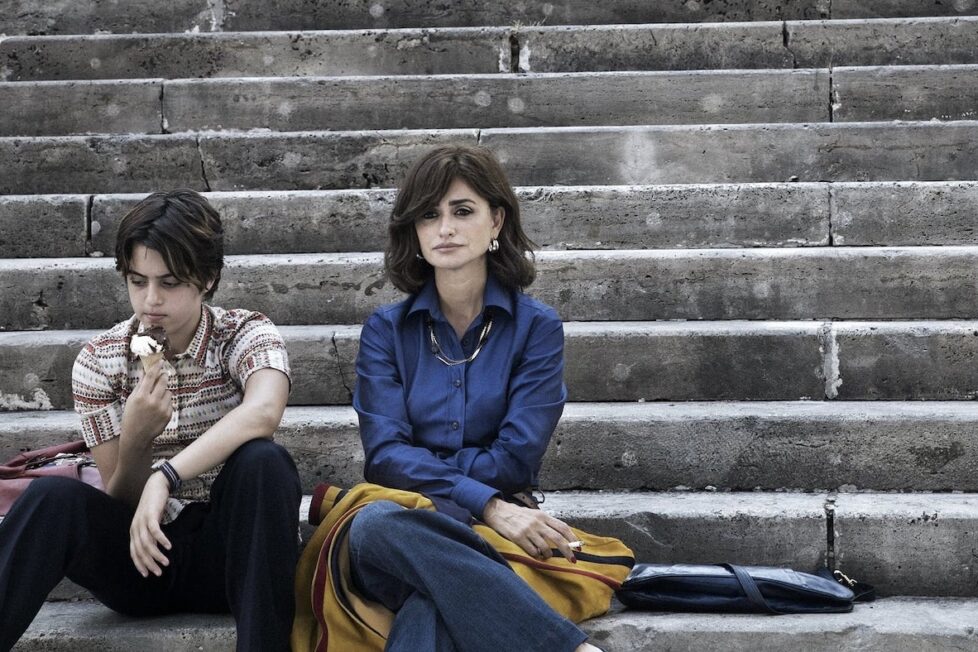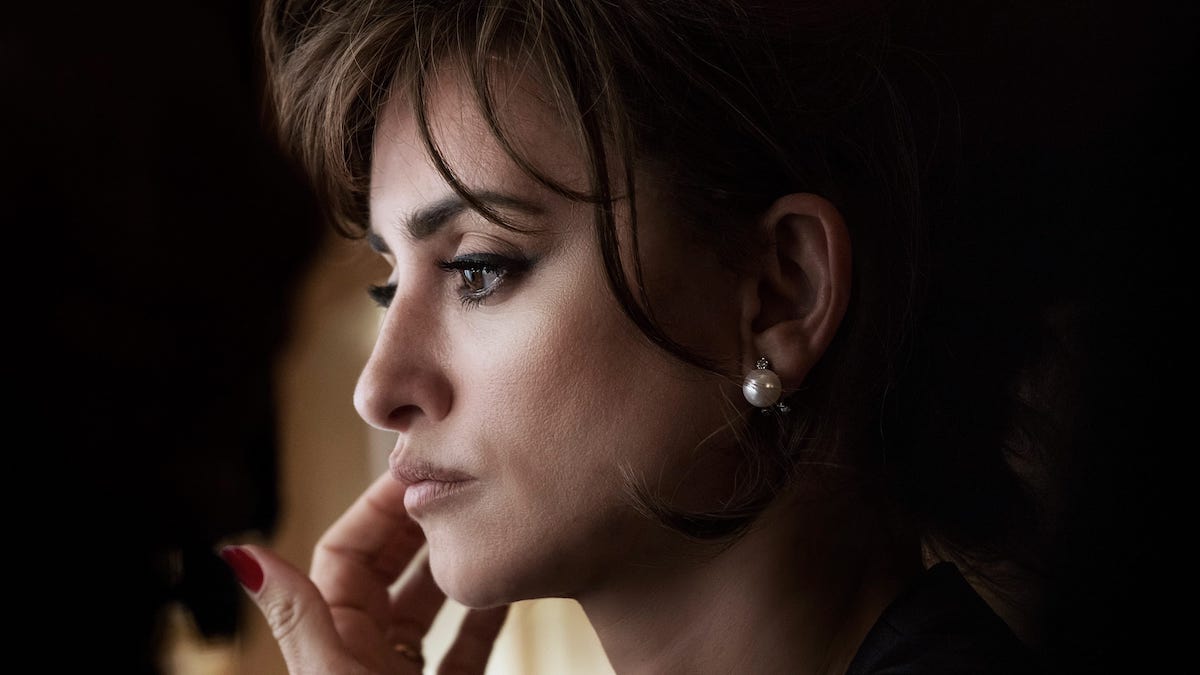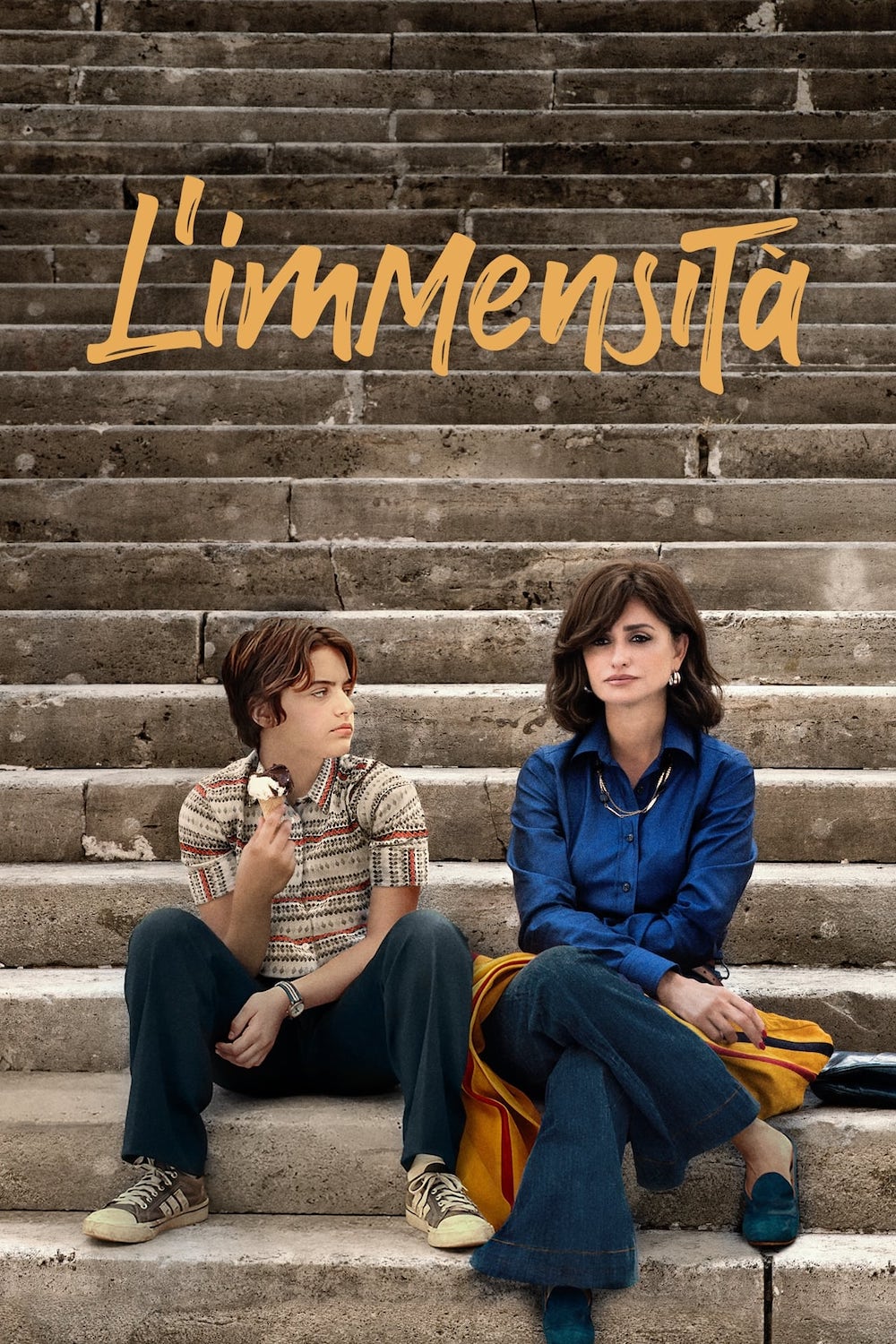L’IMMENSITA (2022)
A story of love between Clara and her children, set in 1970s Rome.

A story of love between Clara and her children, set in 1970s Rome.


L’immensità / The Immensity is a beautiful, touching blend of coming-of-age story and domestic drama. Though the two elements don’t always mix well, the result is an exquisitely shot, nicely acted, and well-directed film mainly concerned with an alienated young girl’s struggle to escape her broken family and an uncaring society.
The film opens in early-1970s Rome and we meet 12-year-old Adriana (Luana Giuliani), a knee-jerk contrarian of sullen demeanour who, like James Dean in Rebel Without a Cause (1955), kicks against whatever tide she happens to be caught in. But behind her anger lies a deep uncertainty regarding her gender and her ignorance of the realities of sex—thanks, in part, to the prudish shadow of the Catholic Church. Adriana’s confusion leads her to claim she’s an alien from outer space and to the realisation she’s supposed to be a boy.
Adriana’s alienation comes as no surprise once we meet her family. While she loves and loathes them equally, her insistence on identifying as a boy makes her a dangerous and embarrassing presence in their rigid Catholic bourgeois world. Her willfulness leads to violent clashes with her younger brother, Gino (Patrizio Francioni), who practices his own brand of passive-aggressive sabotage. Meanwhile, Adriana’s little sister, Diana (Maria Chiara Goretti), is forced to act as a pint-sized grown-up trying to impose a difficult peace between her battling older siblings.

Indeed, there are no real grown-ups about. Their parents hardly deserve the title. Their father, Felice (Vincenzo Amato), is a one-dimensional philandering lout and hard-handed bully, lacking even the virtue of personal charm as he storms about with no thought for anyone but himself; while their mother, Clara (Penélope Cruz), is a great playmate to her three children, but is in the grip of what’s now understood as bipolar illness. She fails to be there for her children when it really counts and every crisis drives her deeper into her shell, from where she sends forth clouds of cigarette smoke. Adriana’s rebellious nature, her need for guidance, and her own ignorance of herself and how life works, eventually leads her to lash out at her mother.
Coming-of-age films have been part of cinema since Mary Pickford played wholesome young girls in the 1910s. Since then, the genre has evolved into serious drama with such classics as Rebel Without a Cause and more recently Richard Linklater’s Boyhood (2014), and Moonlight (2016). However, despite such a long and distinguished pedigree, and even with this film’s gender twist, L’immensità’s busy surfaces seem familiar. This is especially true for those who love with what may be the best-ever film about growing up, Francois Truffaut’s The 400 Blows (1959).
Co-writer and director Emanuele Crialese, a transgender man, closely follows Truffaut’s footsteps while drawing from his own life. He structures L’immensità as a loose series of dramatic vignettes linked thematically by both Adriana’s and Clara’s conflict with each other and the cruel world around them. He and cinematographer Gergeley Pohárnok create images of bright poetry and playful moments that portray children in their own private world, far from the grownups.
To these kids led by Adriana, the adults are fearsome intruders whom they take pleasure in defying with escapades and pranks, including a sewer crawl that plays like a prison escape and an especially rude but ingenious practical joke. Their world is so exclusive that even free-spirited Clara has no place among them, as she’s finally and cruelly reminded when trying to join in the fun.

There are also moments of lyrical imagery. In one scene, Adriana experiences a touch of liberation when she and her Catholic schoolmates shuck their school uniforms at semester’s end and throw them out the window. Outside, the camera watches from below as the vestments float down from the sky like shed feathers. In another moment, Adriana tries out being a boy by clumsily romancing Sara, (Penelope Niéto Conti), the daughter of migrant labourers, while concealing her true gender. The images of the couple at play are full of tension and charm but the episode ends in what some might see as a cop-out, as it turns away from Adriana’s struggle with her identity.
Sometimes, it seems there’s too much going on. Though Adriana’s story so closely follows in the footsteps of The 400 Blows, the film often feels diffuse, especially at the end. While Truffaut ended his classic with young Antoine Doinel standing defiantly alone, angry but resilient, L’immensità leaves Adriana to shrink into her black-and-white pop star fantasies. These fantasy sequences are charmingly staged and scored with 1970s Italian pop songs, but nevertheless they feel superfluous, even indicating that Adriana may be less interesting than we thought.
The performances are excellent across the board. Among the supporting cast, little Maria Chiara Goretti as Diana sparkles with charm, while Vincenzo Amato as Felice gives a thankless rotten husband role a sandpaper texture that makes us hate him even as the screenplay leaves him trapped in the outlines of a stock bully.
Penélope Cruz as Clara dominates, of course, even though she seems more a supporting character, an idea belied by the film’s ad campaign. Cruz’s eyes rival Sophia Loren’s in their depth and power, giving Clara the tragic grace and dignity of a wounded swan retreating into safety, her beauty as much a burden to her as it is a treasure for everyone else.
Luana Giuliani, in her film acting debut, is perfect as Adriana. Her eyes are huge and deep like Cruz’s, yet they burn with her character’s pugnaciousness as strongly as Cruz’s smolder with sad yearning. Under Crialese’s guidance, she superbly portrays Adriana’s many sides: her deep yearnings, her adolescent selfishness, and her petty cruelties. It’s a shame the film leaves her as it does. Despite the implications of the title, L’immensità’s scope seems to shrink at the end.
ITALY • FRANCE | 2022 | 99 MINUTES | 2.39:1 | COLOUR | ITALIAN


director: Emanuele Crialese.
writers: Emanuele Crialese, Francesca Manieri & Vittorio Moroni (story by Emanuele Crialese).
starring: Penélope Cruz, Luana Giuliani, Vincenzo Amato, Patrizio Francioni, Maria Chiara Goretti, Penelope Nieto Conti, Alvia Reale, India Santella & Mariangela Granelli.
